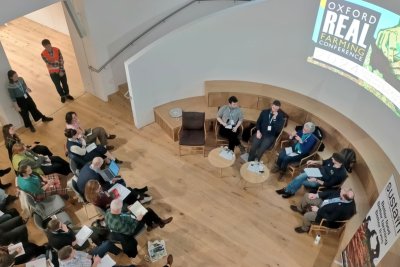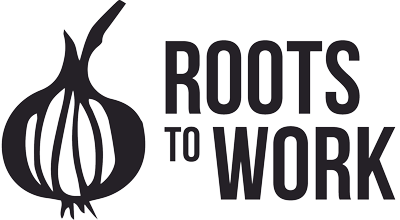
Note: These are all in-person events. The ones that can be accessed online via livestream have been noted below. We understand that audio recordings of ORFC sessions may be available online later in 2025.
Day 1 - Thursday 9 January
Systems thinking: exploring the benefits and barriers to whole farm approaches
Time: 11:00 – 12:30
Venue: Seminar Room, Cheng Building
Speakers: John Seed, Rhodri Lloyd Williams, Rachel Phillips, Hannah Blitzer
Chair: David McKay
Across the UK, farmers, growers and crofters are navigating an increasingly challenging environment, with complex and often conflicting demands on land use - from food production to wildlife restoration, climate adaptation, and more. A ‘whole farm approach’ is often recommended to help maximise the multifunctionality of agricultural land, but what does that look like on-farm, and how can it be better supported by agricultural policy? In this session, we identify key characteristics of whole farm planning, hear from farmers who have started putting this approach into practice, and explore how policymakers across the devolved nations could support more farms to follow suit.
Culling cows and eating insects? Unpicking food and farming misinformation
Time: 13:00 - 13:45
Venue: Digital Hub, Cheng Building (Livestreamed)
Speakers: Clare Carlile, Paul R. Price
Chair: Hazel Healy
Over the past year, sustainable agriculture was subject to intense political debate — as well as manipulation, with misleading narratives spread by everyone from farmer-influencers on YouTube and the far right, to agri-industry and governments. In this panel we share insights from DeSmog’s 2024 investigations into agrimisinformation with a focus on the UK, Ireland and EU elections. The session will seek to explore: how do falsehoods start, who is behind them and what are the impacts? And ask, what other motivations might drive some of the new self-declared allies of farmers?
Workshop: Growing the local food sector - what next?
Time: 14:00 - 15:30
Venue: The Magic Common Room, Story Museum
Facilitator: Peter Samsom
The Local Food Growth Plan is reaching its final stages following interviews,
workshops and research. The plan, by LWA, Sustain, Pasture for Life, SFT,
Better Food Traders and FFCC, aims to both attract investment and stimulate
activity, creating substantial growth in the local food sector. In this workshop
following quick-fire presentations, participants will review areas for action on the themes of infrastructure, citizen demand, the public plate, collaboration, and policy, looking at opportunities, priorities and how they could be involved. This is a chance to shape the final stage of the plan and help translate it into action.
Growing the rainbow: LGBTQ+ perspectives in landwork
Time: 14:00 - 15:30
Venue: Old Library, Town Hall (Livestreamed)
Speakers: Ali Taherzadeh, Umulkhayr Mohamed, Anna Barrett, Ben Andrews, Shane Holland
Chair: Vera Zakharov
Join our panel and discussion on the role of LGBTQ+ identities and experiences in the food and farming system. We will explore reasons for centring identity, gender and orientation in landwork, the challenges faced by LGBTQ+ workers, the gifts diverse perspectives bring, and the value of affinity groups and allyship within and across communities of identity in our movement. Panellists from Teasel Coop, Agrespect, Landworkers’ Alliance Out on the Land and Cultivating Justice, as well as the Slow Food LGBTQ2S+ collective will share their stories and reflections, alongside a wider audience discussion. Everyone is welcome, including our straight and cis allies.
DEFRA Q&A — the future of UK farming under Environmental Land Management
Time: 14:00 - 15:30
Venue: Digital Hub, Cheng Building (Livestreamed)
Speaker: Jonathan Baker
Chair: Tom Lancaster
The Government’s Environmental Land Management (ELM) schemes represent one of the most progressive farming policies in Europe. With 70% of UK land farmed, the ELM schemes aim to use this vast resource to deliver public goods that restore nature, mitigate climate change, and support resilient food production. This session will explore the future direction of ELMs with Jonathan Baker, Deputy Director of Environmental Land Management Schemes at DEFRA and include an in-depth Q&A, offering attendees the opportunity to engage directly and pose questions about the schemes to Jonathan.
Ensuring a just transition from intensive livestock
Time: 16:00 - 17:30
Venue: Digital Hub, Cheng Building (Livestreamed)
Speakers: Laura Stratford, Jake Richardson, Lídia Cabral, Amro Hussain
Chair: Ruth Westcott
Our climate, nature, animal rights and health emergencies require transitioning out of intensive livestock systems to agroecology. How can we ensure this transition addresses power imbalances, tackles injustice and provides the necessary protections to those most affected in such a transition? Join us as we delve into diverse perspectives including worker solidarity and just rewilding. This session will challenge us to think about how justice can be embedded in agricultural, nature, climate and planning policy, ensuring a transition leaves no one behind.
Food & farming futures — a networking hour for emerging leaders and sector supporters
Time: 18:00 - 19:30
Venue: Cheng Cafe, Cheng Building
Hosted by: Sustain, Emergent Generation, Soil Association and Roots to Work
This session aims to provide an informal, inclusive, and engaging networking opportunity for anyone who is passionate about — or curious about — the politics and practice of food and farming. The event is aimed at fostering intergenerational cohesion by welcoming those newer to the movement and those established in it. Come along to meet new people, share ideas and opportunities, and build new connections. Please note that this event is in the café on the second floor of the Cheng Building, you will need to take the lift or stairs up.
Day 2 - Friday 10 January
Radical honesty in action: Paving the way for food and racial justice
Time: 09:00 - 10:30
Venue: St Aldate's Room, Oxford Town Hall
Speakers: Roshni Shah, Nicola Scott, Dawn Dublin
Chair: Idman Abdurahaman
The sustainable food movement faces a critical question: are we truly advancing a just food system? Marginalised communities, particularly Black and people of colour (BPOC), bear the brunt of global food and climate injustices but remain underrepresented in decision-making. Inspired by Eating Better’s Nourishing Justice guide, this panel explores the essential steps for meaningful change, highlighting radical honesty as key to moving beyond Diversity, Equity, and Inclusion (DEI) towards real social justice. We will discuss tangible actions to create a fair and sustainable food system, building on the momentum of the BLM movement to drive systemic change.
Agroecology across the four nations: Unity and divergence in approaches
Time: 09:00 - 10:30
Venue: Digital Hub, Cheng Building (Livestreamed)
Speakers: Alex Mackaness, Gian Marco Currado, Jill Montgomery, George Burgess
Chair: Jenna Hegarty
As the new Labour government emphasises a renewed commitment to better cooperation between the devolved nations, this session aims to foster dialogue on emerging farming policies across the UK. The event will bring together policymakers, NGOs and think tanks from England, Scotland, Wales, and Northern Ireland to outline each nation’s current vision for food and farming, and to discuss how governments are working to produce good food, restore nature, and tackle climate change. Panellists will explore the areas of unity and divergence in these national approaches, and outline the areas for potential collaboration to support the agroecological movement across the country.
Workshop: Local powers and levers driving agroecology
Time: 09:00 - 10:30
Venue: Seminar Room, Cheng Building
Speakers: Mark Walton, Henri Greig, Charlotte Molyneux
Chair: Sarah Williams
The session will look at local powers and levers driving the adoption of agroecological practices and the role of food partnerships in this context. The session will offer participants an overview of the role that local authorities can play to support the agricultural sector including examples from Devon County Council, farmers, policy experts and food partnerships. This is a workshop-style session where there will be opportunities to exchange ideas, ask questions and contribute to a discussion as to how local powers could further support the sector.
How do we actually fund an agroecological transition?
Time: 09:00 - 10:30
Venue: Lecture Theatre, Jesus College, Ship Street
Speakers: Jo Poulton, Will White, Nina Isabella Moeller, Hamish Evans
Chair: Bonnie Hewson
The food system needs a just transition — how do we create the conditions for change and ensure no one is left behind? In our current extractive economy, corporate interests have the most power to dictate terms, stifling transformation. This panel will explore the cultural shifts and policy levers needed for an agroecological transition, focusing on justice, equity, and community ownership. We’ll discuss strategies to reclaim decision-making power, prioritise a well-being economy, and elevate food from a public good to a human right. Join us in envisioning a future of food sovereignty and ecological resilience — and help us plan how to get there.
Improving food resilience: Connecting farmers, government and citizens
Time: 11:00 - 12:30
Venue: Lecture Theatre, Ship Street
Speakers: Tom Pearson, Kelly Parsons, Sarah Williams, Tim Lang
Chair: Rebecca Wells
This panel explores how different aspects of food resilience — usually considered in isolation — can be connected. Farmers are natural experts in embedding resilient approaches on-farm. Food resilience is rising up national and local government agendas, in the face of food supply shocks and stresses. Those ultimately impacted — the public — rarely feature in discussions. What lessons from farm risk management and diversification could help inform approaches to embedding resilience? How can we ensure farmers and citizens are better represented in food resilience policy? How can farmers support their local citizens to improve their own resilience?
Workshop: Creating solutions for farming on lowland peat
Time: 11:00 – 12:30
Venue: Seminar Room, Cheng Building
Facilitators: Vicki Hird, Tammy Smalley, Lucia Monje-Jelfs, Laura Stratford, Julien Etienne, Robert Caudwell
Lowland carbon peat soils are precious — from storing vast amounts of carbon to being a key wildlife, food and hydrological resource. Yet they are severely degraded, leading to soil and nature loss and greenhouse gas emissions. This is partly due to major horticulture, arable and livestock production which needs to change or move elsewhere. This session is led by the Wildlife Trusts, Soil Association, and Greater Lincolnshire Food Partnership. A panel of practitioners and experts who work with local growers will initiate a group discussion on key issues, and on how local dialogues, issues of place, and livelihoods matter. Small groups will then work on lowland peat production and solutions to discuss in a final wrap-up.
Organic: The preserve of the privileged?
Time: 14:00 - 15:30
Venue: Digital Hub, Cheng Building (Livestreamed)
Speakers: Carol Alyce Adams, Sean Ruffell, Phil Swire, Sophie Kirk
Chair: Hannah Gibbs
Is organic the preserve of the privileged? We don’t believe it should be. Healthy, sustainably produced food should be accessible to everyone — not just people on higher incomes. Sustain and Soil Association have convened a panel of speakers working across the food supply chain to explore the opportunities to make organic food more available, affordable to everyone and fair to farmers. We will delve into the challenges of achieving optimal scale alongside ethical practice, the market for smaller independent retailers and the responsibility of the larger retailer, and what policy shifts we need to see in support of enabling access to organic for all.



